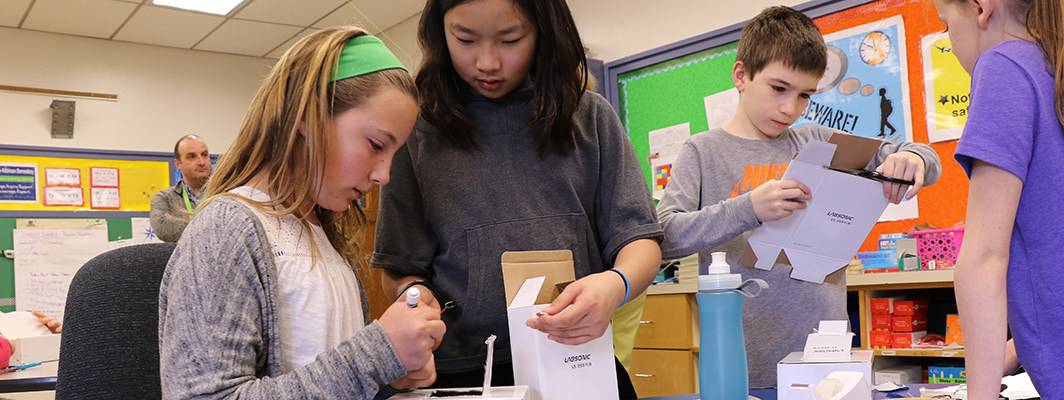
April 18, 2018 | By Kimberly Smith
Over the past year, Digital Promise has been conducting research with the League of Innovative Schools to catalog their most significant educational challenges. In this world of complex challenges, a close analysis reveals a high level of commonality across districts. Despite differences in socioeconomics or urbanicity, the challenges center on a defined set of characteristics. The result of this work will be published later this year as a Challenge Agenda – a comprehensive catalog of the high-priority challenges that K-12 districts need and want to solve.
Once we know the WHAT, the most difficult question is: HOW do we support the K-12 ecosystem in solving the sector’s most pressing challenges? Historically, the answer is each district develops and/or implements their own solution. But, if the issues are common to multiple districts, a significant opportunity exists in engaging networks of districts to create shared solutions to the challenges they face.
A new model called Challenge Collaboratives establishes a framework for multiple districts to partner to develop shared solutions – products, programs, tools, and practices – that address the identified needs and scale to many districts. The model focuses on two key elements to support districts in this work: deep collaborations with researchers and rapid-cycle design processes.
Traditionally, education research has not been directly driven by practitioner-sourced challenges. With Challenge Collaboratives, the issues districts are facing are at the center of the research and form the foundation for an aligned partnership between district leaders and researchers. As a Challenge Collaborative partner, the researcher’s interest is to collaboratively define, field test, and validate solutions to analyze progress in driving student outcomes. Researchers are incentivized by the opportunity to engage practitioners as thought partners, to work on the frontline with teachers and students across multiple contexts, and to benefit from continual feedback loops to support deeper data gathering and analysis. And, practitioners gain a valuable perspective on how to incorporate research as an input into decision-making and implementation of solutions.
A second key element in the Challenge Collaborative model is rapid-cycle design. In traditional K-12 design, practitioners are typically included on the periphery as participants in focus groups, surveys, and test sites. The result is a slew of solutions that often do not solve the core problem, are difficult to implement, or are over-built in an effort to address too many issues. Challenge Collaboratives partner learning experience designers and engineers with practitioners and researchers in solution definition and design. The process invites the end-users themselves – superintendents, district leaders, principals, teachers, students and parents – to create the design specification and guide the build. A rapid-cycle design approach provides frequent opportunities for input as components are constructed. And, because multiple districts are engaged, the process further benefits from the inclusion of many perspectives representing a range of use cases and contexts.
The end goal of the Challenge Collaborative model is to create tools and practices that are pressure-tested in networks of districts, validated in multiple contexts through research, and packaged to scale to the broader K-12 market. The hope is that models for solving educational challenges will pivot towards the creation of agile partnerships between districts, researchers, and others to develop effective solutions that benefit thousands of teachers and students.
Keep following us to hear about the release of the Challenge Agenda and new programs and tools from the Challenge Collaboratives.
By Jeremy Roschelle, John Whitmer and Peter Bull
By Adrianna S. and Kyrie F.